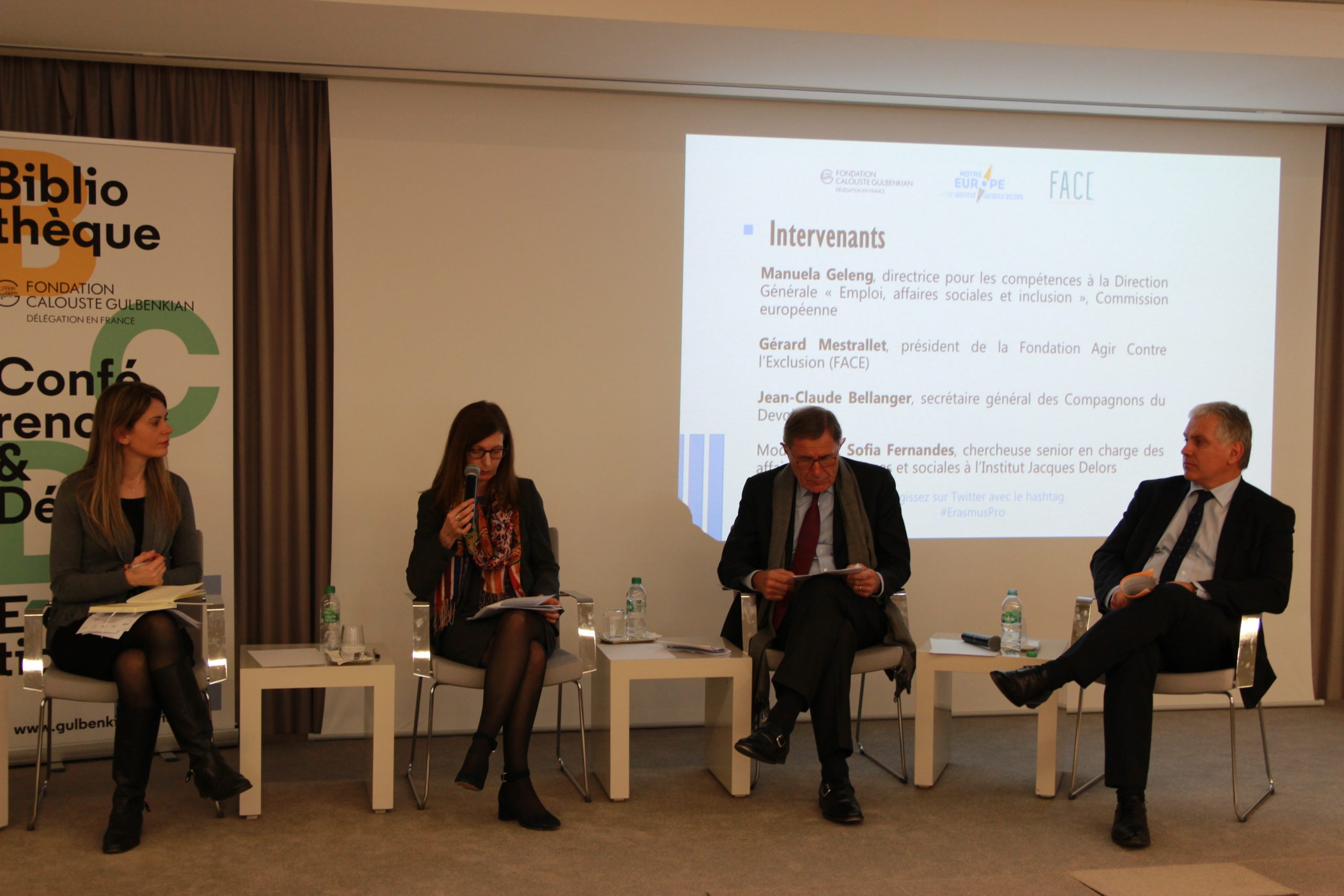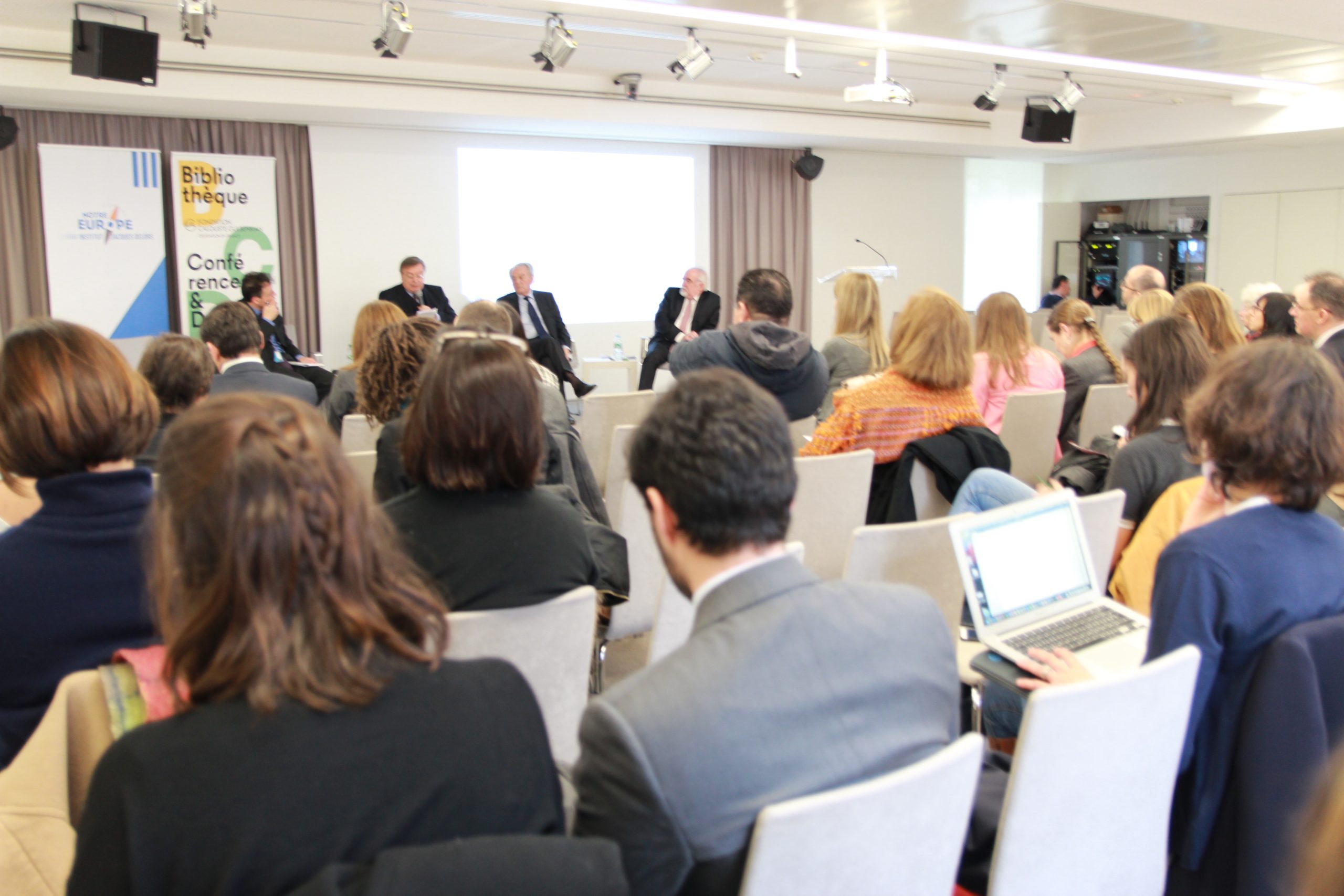L’apprentissage : un avenir pour l’Europe



Au niveau européen, d’importantes initiatives ont été lancées ces dernières années, notamment la création de l’Alliance européenne pour l’apprentissage en 2013 et le lancement, en 2017, de l’initiative Erasmus Pro, pour favoriser la mobilité longue des apprentis. C’est néanmoins au sein des États membres qu’agissent les protagonistes chargés de développer l’apprentissage en Europe. Dans ce contexte, comment améliorer les synergies entre l’action européenne et l’action nationale ? Faut-il renforcer le soutien technique et/ou financier de l’UE aux réformes nationales ? Quels sont les leviers à mobiliser pour renforcer la mobilité des apprentis et quels sont les freins rencontrés par les apprentis, les entreprises et les centres d’apprentissage ? Plus largement, que faire pour donner davantage le goût de l’apprentissage en Europe ?
Pour répondre à ces questions, l’Institut Jacques Delors co-organise, avec la Fondation Calouste Gulbenkian et la Fondation Agir contre l’Exclusion (FACE), une conférence qui réunira des acteurs de l’apprentissage et des décideurs nationaux et européens. À cette occasion seront présentés les résultats de la consultation citoyenne sur la mobilité des apprentis organisée le 16 octobre 2018 la maison des Compagnons du Devoir et du Tour de France, à Paris.
14:00⋅Mot d’accueil par Guilherme d’Oliveira Martins, administrateur exécutif de la Fondation Calouste Gulbenkian
14:10⋅Keynote speech de José Vieira da Silva, ministre du Travail, de la Solidarité et de la Sécurité sociale de la République portugaise
14:30⋅Que peut l’apprentissage pour l’Europe et que peut l’Europe pour l’apprentissage ?
Jean Arthuis, membre du Parlement européen
Antoine Foucher, directeur de cabinet de la Ministre du Travail de la République française
Pascal Hector, ministre plénipotentiaire de l’ambassade d’Allemagne en France
Modération : Sofia Fernandes, chercheuse senior en charge des affaires économiques et sociales à l’Institut Jacques Delors
15:40⋅Mobilité, un levier pour le développement de l’apprentissage en Europe ?
Manuela Geleng, directrice pour les compétences à la Direction Générale « Emploi, affaires sociales et inclusion », Commission européenne
Gérard Mestrallet*, président de la Fondation Agir Contre l’Exclusion (FACE)
Jean-Claude Bellanger, secrétaire général des Compagnons du Devoir
Modération : Sébastien Maillard, directeur de l’Institut Jacques Delors
16:45⋅Conclusion par Nicolas Schmit, ancien ministre du Travail du Luxembourg
Nombre de places limitées, inscription obligatoire en remplissant ce formulaire


